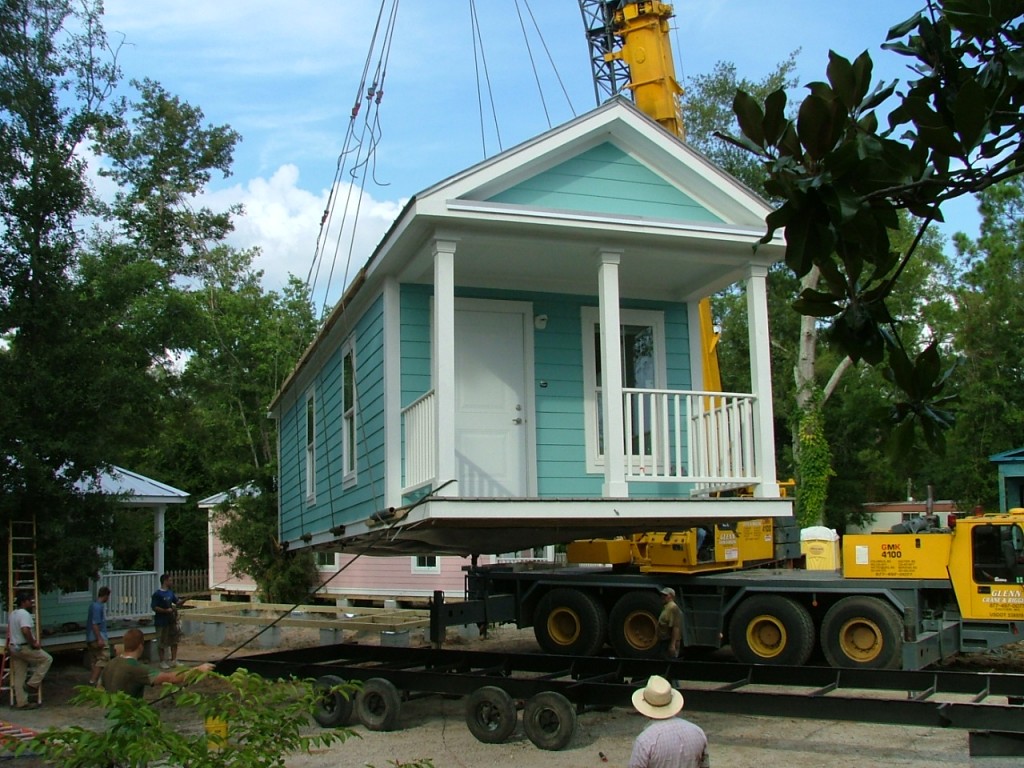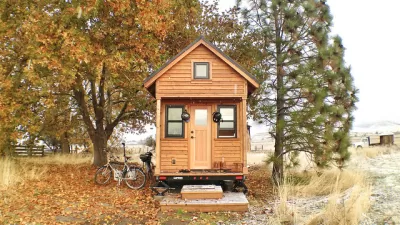Can the tiny house fetish evolve to address real sustainability and affordable housing challenges? Ben Brown says yes.
"I’ve never been much of a fan of the Tiny House movement, which seemed to me to be a solution in search of a problem. Squeezing marginally comfortable living space into something you can haul around with a truck didn’t seem to be much of a design challenge. After all, there’s a whole industry that’s been addressing that demand for generations. You know, RVs."
Brown goes on to discuss his three months living in what many might call a Tiny House. He had no problem functioning happily in its 350-square-feet because "the house was a legal structure on a fixed foundation in a mixed-use, infill neighborhood in easy reach of everything I needed." It's about the neighborhood structure.
Now there are a number of different organizations and ideologies having the same conversation, calling it all different things: weeHouse, pocket neighborhoods, and cottage courts. Brown suggests we broaden the discussion so these parallel paths can converge to a set of best practices.

FULL STORY: Thinking a Little Bigger About the Tiny House Thing

Planetizen Federal Action Tracker
A weekly monitor of how Trump’s orders and actions are impacting planners and planning in America.

Chicago’s Ghost Rails
Just beneath the surface of the modern city lie the remnants of its expansive early 20th-century streetcar system.

San Antonio and Austin are Fusing Into one Massive Megaregion
The region spanning the two central Texas cities is growing fast, posing challenges for local infrastructure and water supplies.

Since Zion's Shuttles Went Electric “The Smog is Gone”
Visitors to Zion National Park can enjoy the canyon via the nation’s first fully electric park shuttle system.

Trump Distributing DOT Safety Funds at 1/10 Rate of Biden
Funds for Safe Streets and other transportation safety and equity programs are being held up by administrative reviews and conflicts with the Trump administration’s priorities.

German Cities Subsidize Taxis for Women Amid Wave of Violence
Free or low-cost taxi rides can help women navigate cities more safely, but critics say the programs don't address the root causes of violence against women.
Urban Design for Planners 1: Software Tools
This six-course series explores essential urban design concepts using open source software and equips planners with the tools they need to participate fully in the urban design process.
Planning for Universal Design
Learn the tools for implementing Universal Design in planning regulations.
planning NEXT
Appalachian Highlands Housing Partners
Mpact (founded as Rail~Volution)
City of Camden Redevelopment Agency
City of Astoria
City of Portland
City of Laramie



























